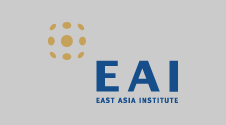
The Denuclearization of North Korea and the US-China rivalry
Commentary | December 27, 2018
Chaesung Chun
The Chair of the International Relations Studies Center at the East Asia Institute
Following a year of breathless expectations, negotiations between North Korea and the United States have stagnated due to many reasons. Pundits skeptical of North Korea’s genuine intentions to denuclearize believe that Kim Jong Un is still developing technologies for nuclear warheads and long-range missiles despite the moratorium on nuclear and missile tests. North Korea, as shown in the recent announcements made by several officials, has criticized the United States for failing to implement corresponding measures such as a partial lift of sanctions from the American side. There is a growing expectation that early next year, there will be a second breakthrough summit between North Korea and the United States, but the nature of the North Korean nuclear problem is changing against the background of the Northeast Asian international situation, especially the extensive clash between Washington and Beijing.
American unipolarity, which lasted for about two decades after the end of the Cold War, seriously threatened the prospects of survival of so-called “rogue states.” As one of these rogue states, North Korea sought the ultimate weapon to gain recognition as a political entity worth surviving after its socialist comrades had all fallen. To prove itself powerful enough to pose a threat to the American unipole was somehow effective to draw attention and concessions from Washington, and the state thereby found leverage to fight for diplomatic normalization with the United States and for economic development. However, the lack of trust between North Korea and the United States, and North Korea’s fear of being structurally absorbed by South Korea after reform and opening made Kim Jong Il hesitate over the strategic decision to denuclearize.
Under the new US-China rivalry, North Korea has suddenly found itself in a far more difficult position. Amidst growing geopolitical and geoeconomic competition, the two giants are eager to avoid the relative losses that promise to follow after the resolution of the North Korean nuclear problem. The complete denuclearization of North Korea will bring about not only a denuclearized North Korea, but also a Korean Peninsula under a peace treaty. What becomes of North Korea after a peace treaty is signed will be the focus of attention as it has the potential to change the geostrategic balance of power in Northeast Asia between the United States and China. Will North Korea transform itself into a pro-American country after diplomatic normalization? Will North Korea remain a staunch ally of China and fight against the US policy of counterbalancing China? Will North Korea try to maintain a policy of equidistance between the United States and China to maximize its own strategic and economic interests? It is completely uncertain what kind of diplomatic strategy North Korea will follow after it denuclearizes, and this is what lies behind the strategic hesitation of both Washington and Beijing to jump into the phase of peace treaty.
It seems likely that Kim Jong Un will strive to pursue a self-reliant diplomatic strategy to maximize the interests of the North Korean regime in a practical way. However, North Korea’s nuclear weapons are not so powerful as to make it possible for the country to evade falling victim to the diplomatic dilemma that the rivalry between the United States and China is inflicting on every other East Asian country. Without a well-devised diplomatic strategy, North Korea will face the same strategic dilemma as everyone else, and its nuclear weapons will not save Kim Jong Un. Even with a nuclear arsenal, Kim lacks products to sell that might prove North Korea’s value as a regional player. It follows that President Trump and President Xi Jinping will not be willing to take the geostrategic risk necessary to conclude a peace treaty that may harm their future geopolitical interests, and thus we may deduce that both are hoping to maintain the status quo on the Korean Peninsula while eliminating the immediate security threat posed by North Korea’s development of nuclear weapons. As President Trump concentrates on dealing with the rising tensions between America and China, he may be satisfied with the absence of direct nuclear threat from North Korea. At the same time, China prefers for its neighbors to be stuck in the midst of stalled negotiations rather than having to address a denuclearized North Korea with close economic and strategic relations with South Korea and the United States.
In 2019, negotiations to denuclearize North Korea will face recurring difficulties unless the United States is able to identify more positive interests that may result from the negotiations, and China becomes confident that it can depend on North Korea to take its side in the competition with the United States and that it will have a better chance to pursue its own strategic interests after a peace treaty is concluded. The combination of a denuclearized North Korea and a post-peace treaty Korean Peninsula will change the status quo in Northeast Asia.
Meanwhile, the South Korean government, which continues to pin its hopes on achieving denuclearization and a peace treaty, needs to ponder the strategic interests of the two giants. South Korea’s roadmap for the future should depict a peaceful Peninsula that plays a beneficial role in its relations with both the United States and China, and a more positive role for South Korea overall to achieve a better harmonization of interests between the two.■
■ Chaesung Chun also serves as a professor of the department of political science and international relations at Seoul National University. Dr. Chun received his Ph.D. in international relations from Northwestern University.

Tasks Ahead beyond the Stalemate
Young-Sun Ha | 14.November.2018

Moon Faces Two Americas in Trying to Make Peace with North Korea
Seong-ho Sheen | 14.November.2018
LIST